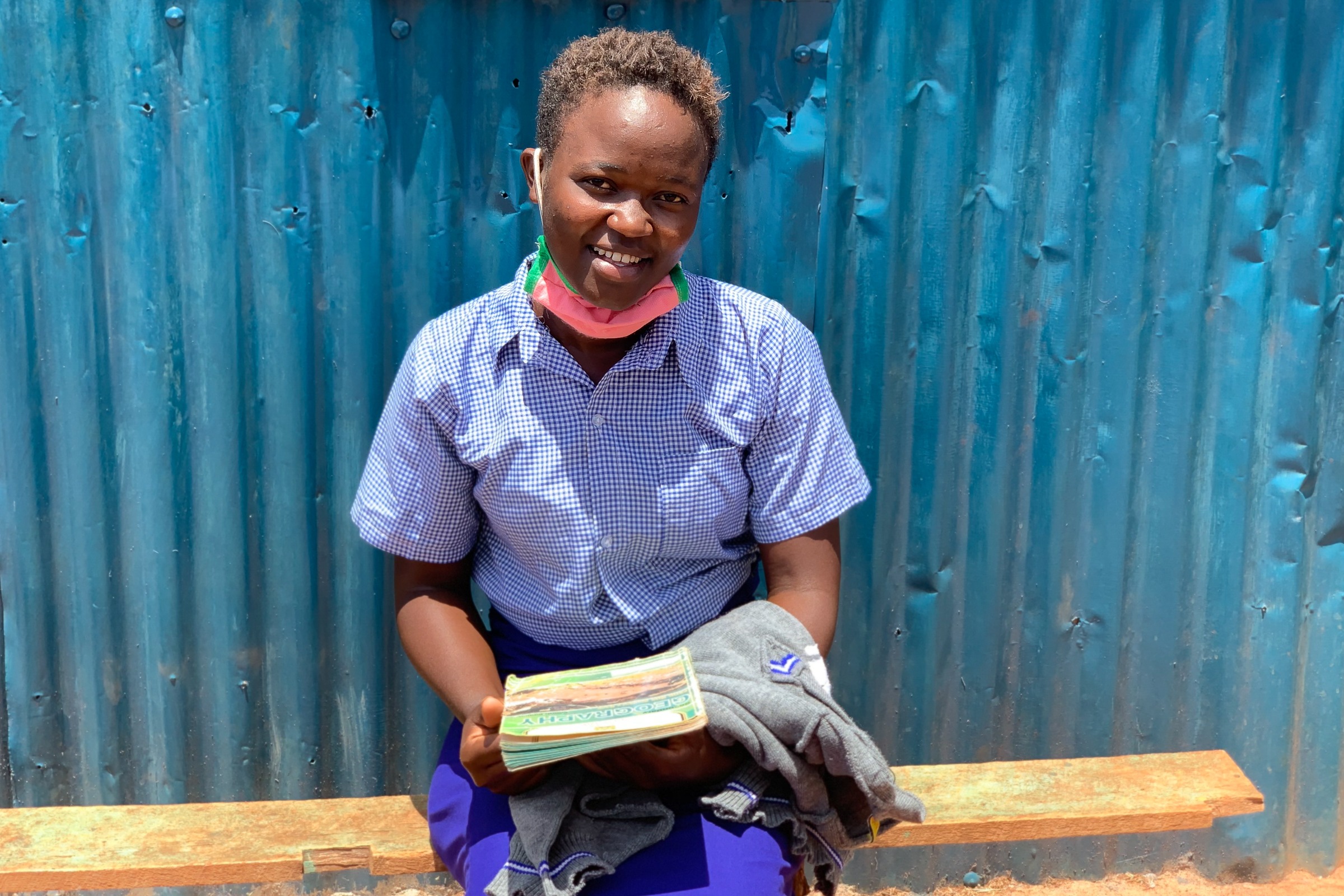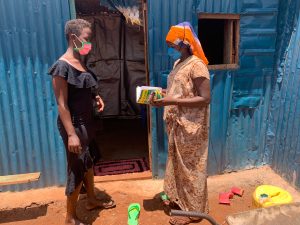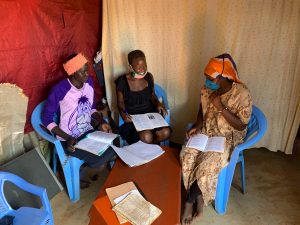
Kambi Sheikh is the small village on the outskirts of Isiolo town that 19-year-old Dorcas Wairimu calls home. Dorcas, along with 4 percent of girls in Kenya, according to a 2017 UNICEF report, was married before her fifteenth birthday because of the poverty her family experienced.
“My parents could not afford much, and, even for my primary education, I attended a school for orphans and destitute children where education was free. Despite performing well in my final year exams, I could not proceed to secondary school and, thus, had to drop out.”
DORCAS Wairimu, project participant
After dropping out, Dorcas married a man who was also living in poverty, and the cycle of poverty continued. “Since we were both poor, we decided to engage in menial jobs to see how we can sustain ourselves,” Dorcas said. “I would go around to peoples’ farms and offer to dig plant, or weed and would make KSh200 to KSh300 (US$2 to US$3) a day.”
Damaging Effects of Child Marriage and Pregnancy
Child marriages are prevalent in Northern Kenya. UNICEF reports (2017) indicate that at least 23 percent of Kenyan girls are married before the age of 18. Some of the factors that lead to this harmful practice include poverty, child pregnancy, and harmful traditions such as female genital mutilation and “beading,” when older men rape young girls.
Despite the challenges she confronted, Dorcas continued working, but it was not long before she gave birth to her first child at age 16. Teenage pregnancies are also common in Northern Kenya, as evidenced by a 2016 Mercy Corps study showing that 20 percent of girls ages 15 to 19 had at least one child. One of the key determinants is school closures. When schools close, young girls have less access to meals and sanitary towels. This raises the risk of girls engaging in transactional sex to access these essential needs.
Soon after having her first child, Dorcas learned of an opportunity that she could not miss.
“In 2019, our local chief went around the villages informing us of a program that was targeting adolescent girls, seeking to empower them. As soon as I heard about it, I signed up.”
Dorcas Wairimu, project participant
Providing a Safe Space for Girls to Learn

The Girls Improving Resilience Through Livelihoods (GIRL) model is a nine-month “safe space” training for girls between the ages of 10 to 19. The GIRL model is part of the Feed the Future Livestock Market Systems Activity, a USAID-funded program. GIRL participants gain literacy, numeracy, and life skills and learn about reproductive health, nutrition, financial literacy, and business — all within a safe setting that allows them to express themselves fully.
“One of the foremost lessons was on business, and, through it, I started a poultry farm where I have now been able to complement my family’s income through the sale of chickens and eggs.”
Dorcas Wairimu, project participant
The GIRL model also encourages girls to return to school, regardless of their circumstances. Despite her growing family and the increase in income her family experienced after she started a poultry farm, Dorcas was able to convince her husband to let her go back to school. Using her own income, Dorcas paid for her school uniform, books, and first-term tuition.
Challenging the Stigma of Girls Returning to School
Dorcas faced challenges. “Going back to school has not been easy, especially because a lot of people within the community look down on me,” Dorcas said. “Some have even questioned my husband’s decision and tried to sway him to make me stop, saying that when I get an education I will leave him. This has not dissuaded him nor me.”
Instead of shying away, Dorcas used the stigma she faced to spread awareness about the importance of education.
“I believe that an educated woman within the community is very important because women are the backbone of the community. So whenever I go to the farms to dig with other girls, I urge them to find ways to return to school. So far, I have been able to convince two girls who have since enrolled back to secondary school after dropping out.”
Dorcas WAIRIMU, PROJECT PARTICIPANT
Becoming a Voice of Change
Dorcas hit another roadblock in March 2020, when schools closed due to the pandemic right after she completed her first term and placed second in her class. Seven months later, schools are yet to reopen. Dorcas, who enjoys biology and geography, still pursues her studies alongside her day-to-day duties. She dreams of completing her secondary education and attending a tertiary institution to study teaching.
“Being a teacher, you can help people within the community. I want to help other girls who may find themselves in similar situations as I was in. Getting married early and getting children is not the end of learning or pursuing an education.”
DORCAS WAIRIMU, PROJECT PARTICIPANT

Dorcas is one of many girls on the path to self-reliance through the support of the GIRL model in Northern Kenya. When young girls like Dorcas have access to educational opportunities, their futures and the futures of their communities, in terms of development and economic growth, expand.
Since the project’s inception, 73 girls in Isiolo have returned to formal education. Across the five counties where the GIRL project is implemented, over 200 girls have resumed formal education.
The GIRL model is an activity of the Feed the Future Kenya Livestock Market Systems Activity, implemented by ACDI/VOCA in coordination with partners Mercy Corps, Smart Regional Consultants, and the BOMA Project. Its life skills model is customized for counties in Northern Kenya. It creates safe spaces where girls improve their educational prospects by strengthening linkages that can lead to formal educational opportunities. The model also emphasizes decision-making and critical thinking. It deals with social issues like family planning, early marriage, and early childbirth, nutrition, and feeding practices for children. Improved life skills enable girls to better withstand and thrive in situations of social flux and uncertainty as presented in Northern Kenya. Thus far, 8,577 adolescent girls have completed “safe space” training. LMS has disbursed USD 5,987 in grants for small business loans or school fees at secondary or technical institutes. The Activity also works with county governments to advise and craft policies empowering women and girls to break harmful cultural practices and protect girls.
Learn more about the Feed the Future Kenya Livestock Market Systems Activity here.
Learn more about our work in Kenya here.







